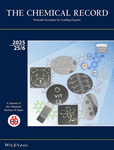Journal list menu
Export Citations
Download PDFs
Cover
Cover Picture: Self-assembly of Tyrosine Scaffolds in Aqueous Media: Complex Molecular Architectures from Simple Building Blocks (Chem. Rec. 6/2025)
- First Published: 16 June 2025
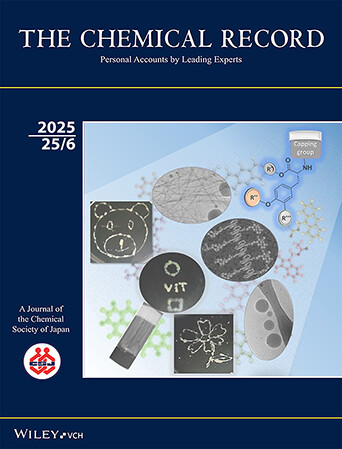
Tyrosine plays crucial role in biological systems as a precursor for essential biomolecules. Mimicking biological systems, tyrosine-based molecules can self-assembled to complex molecular architecture employing non-covalent interactions. Formation of complex material through self-assembly of simple tyrosine-based molecular scaffold holds significant promise for achieving smart supramolecular materials for various applications in material science and biomedical field. More detail can be found in the article number e202500005 by Dineshkumar Bharathidasan and Chandan Maity.
Cover Feature: Thermochemical Recycling and Degradation Strategies of Halogenated Polymers (F−, Cl−, Br−): A Holistic Review Coupled with Mechanistic Insights (Chem. Rec. 6/2025)
- First Published: 16 June 2025
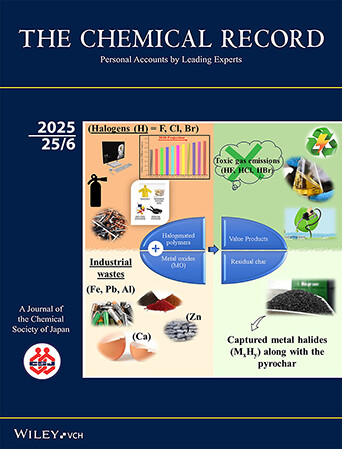
This review aims to comprehensively address recent degradation techniques (physical, chemical and biological) of halogenated waste polymers with a prime focus on thermal degradation techniques. Exploiting various metal oxides during co-pyrolysis is deemed a viable solution for recycling halogenated polymeric waste. This approach has multiple accomplishments of reducing toxic gas emissions and producing valuable products in addition to the invaluable metal recovery via water leaching from pyrochar. More details can be found in article number e202500022 by Mohamed Shafi Kuttiyathil, Labeeb Ali, and Mohammednoor Altarawneh.
Personal Account
Electrocatalysis: Prospects and Role to Enable an E-Chemistry Future
- First Published: 03 March 2025
Review
Self-assembly of Tyrosine Scaffolds in Aqueous Media: Complex Molecular Architectures from Simple Building Blocks
- First Published: 10 April 2025

Mimicking natural self-assembly process, artificial nanostructures can be obtained for several applications. This review summarizes the self-assembly of tyrosine-based molecular scaffolds to obtain complex materials for their application in biomedical fields, and provide perspectives on their potential impact.
Thermochemical Recycling and Degradation Strategies of Halogenated Polymers (F−, Cl−, Br−): A Holistic Review Coupled with Mechanistic Insights
- First Published: 07 April 2025
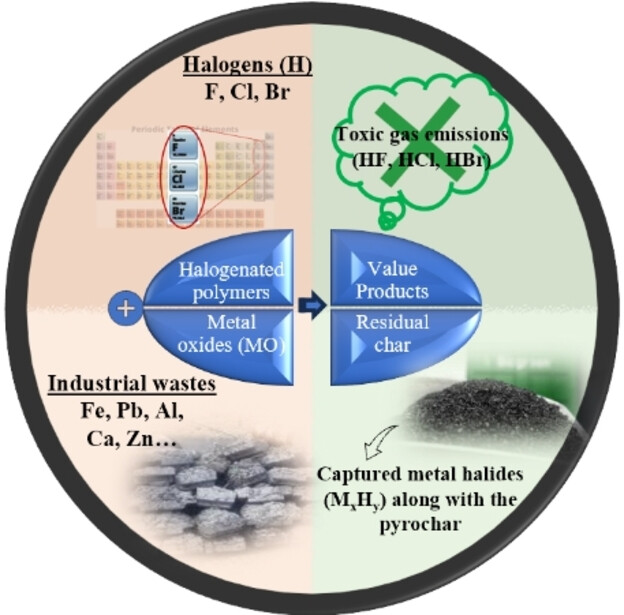
This review aims to comprehensively address recent degradation techniques (physical, chemical and biological) of halogenated waste polymers with a prime focus on thermal degradation techniques. Exploiting various metal oxides during co-pyrolysis is deemed a viable solution for recycling halogenated polymeric waste. This approach has multiple accomplishments of reducing toxic gas emissions and producing valuable products in addition to the invaluable metal recovery via water leaching from pyrochar.
Advances in Graphene-Transition Metal Selenides Hybrid Materials for High-Performance Supercapacitors: A Review
- First Published: 01 April 2025
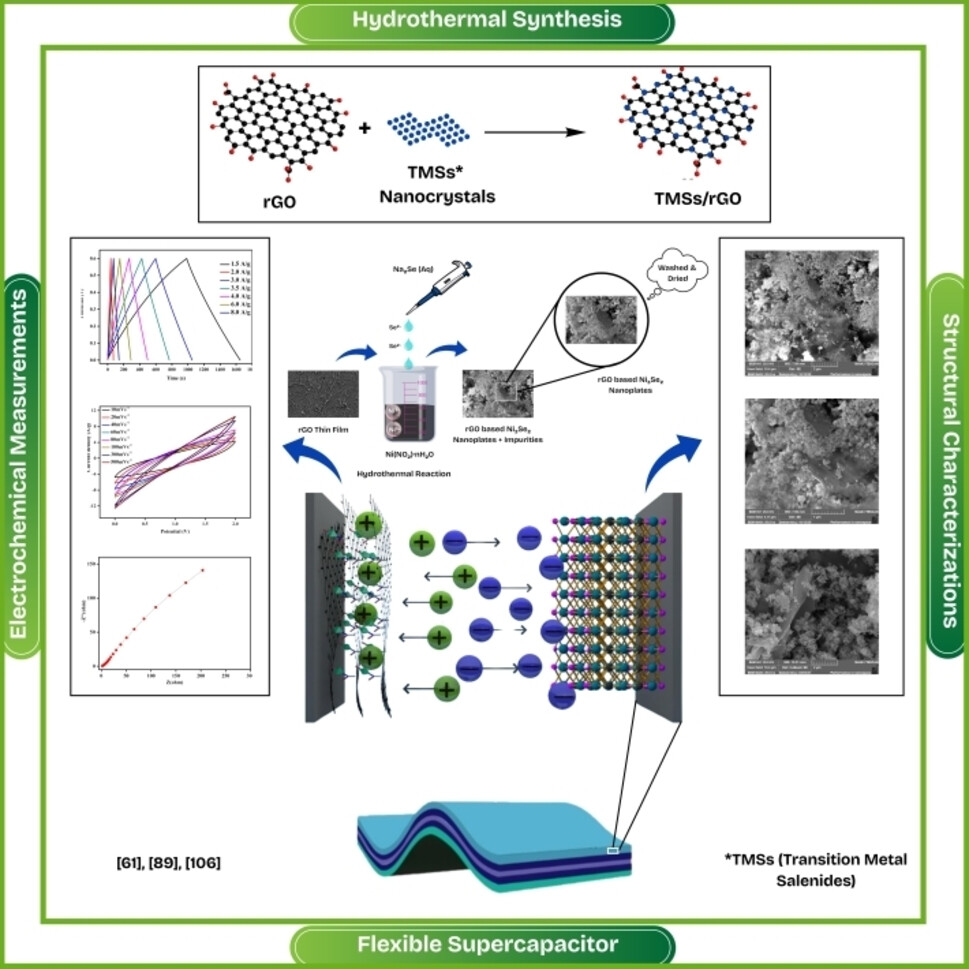
This review discusses the principles of high-performance supercapacitors, focusing on electrode materials, electrolytes, and strategies for achieving high energy density. It highlights the advantages of graphene-based nanocomposites and transition metal selenides (TMSs) for supercapacitor applications due to their excellent power density, cyclic stability, and cost-effectiveness. Additionally, the study emphasizes the importance of scalable preparation and purification technologies to ensure the commercialization of these advanced nanomaterials
Metal-Organic Frameworks (MOFs): Multifunctional Platforms for Environmental Sustainability
- First Published: 01 April 2025
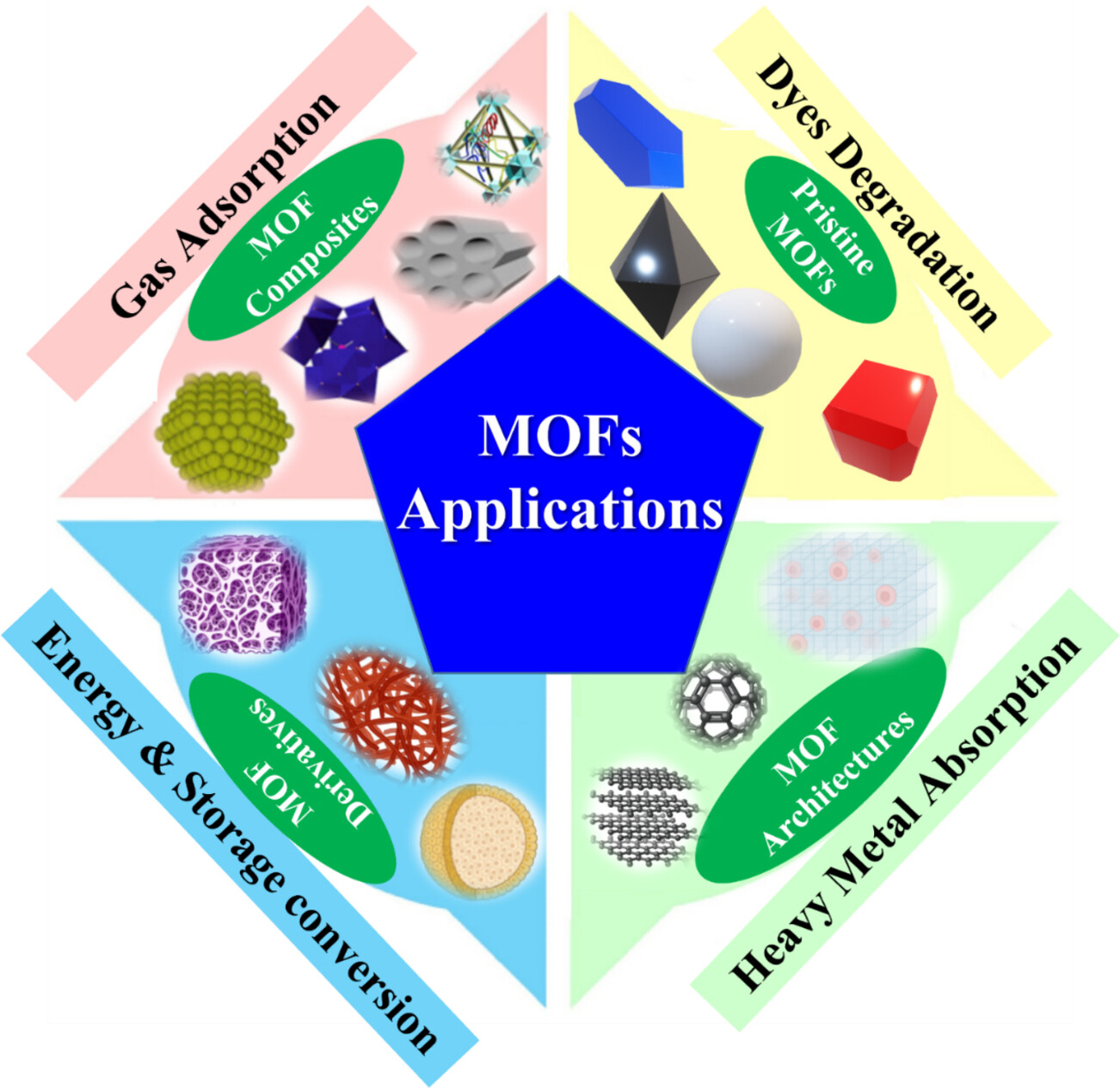
Metal-organic frameworks (MOFs) are versatile materials with unique properties, offering sustainable solutions to environmental challenges. This review covers advanced synthesis techniques, and their role in environmental remediation, gas capture, and energy storage, and addresses challenges like scalability and long-term performance.
Enhance Water Electrolysis for Green Hydrogen Production with Material Engineering: A Review
- First Published: 07 April 2025
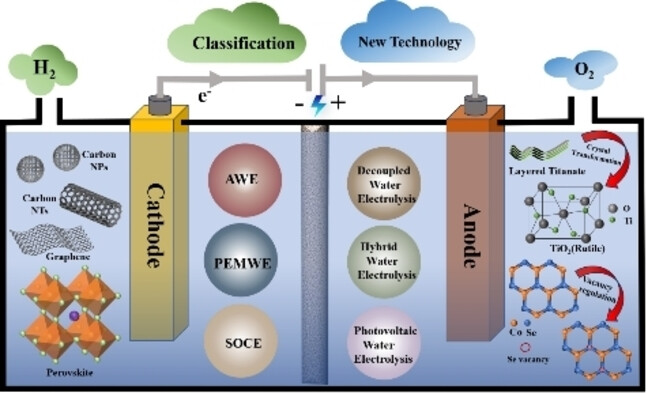
Hydrogen, as an energy carrier, can reduce dependence on oil and natural gas. At the same time, hydrogen is an important raw material for many industrial processes, such as chemical engineering, oil refining, and steel production. Electrolysis technology is one of the key technologies for achieving a transition in the energy structure, helping to promote the shift from fossil fuels to clean energy. However, due to the varying levels of development and maturity among different water electrolysis technologies, as well as the need for further improvements in efficiency and performance, it is necessary to advance materials engineering and develop water electrolysis technology to ultimately achieve the goal of commercial application.
Electrochemical Difunctionalization of Alkenes
- First Published: 03 February 2025
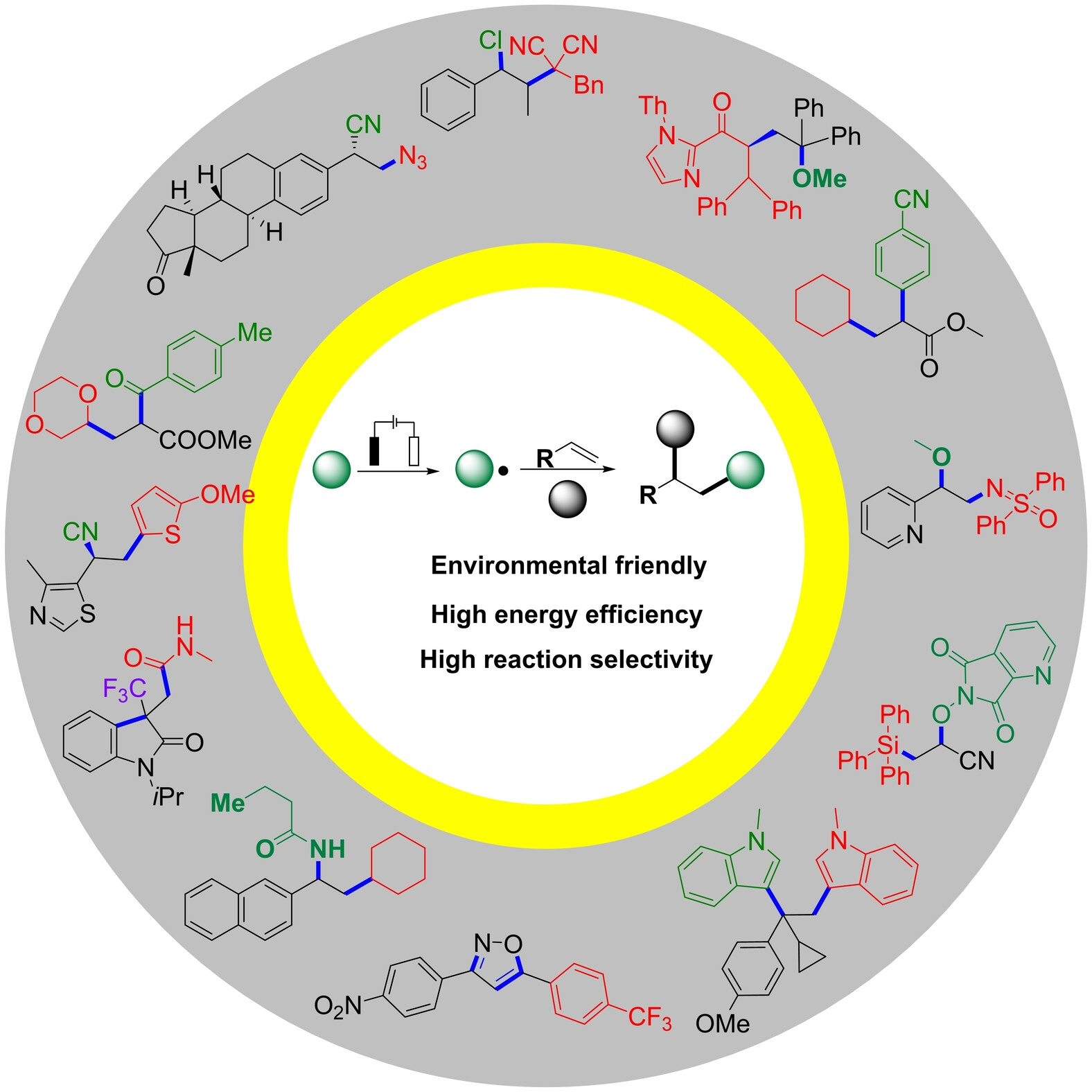
Recent progress in electrochemical alkene difunctionalization is covered, which is organized according to the alkene difunctionalization types and the radical category, as well as is divided to three sections, including (1) dicarbofunctionalization, (2) hetero-carbofunctionalization and (3) diheterofunctionalization. Selected impressive examples showcase the importance of the electrochemical difunctionalization in academia and industry.
Metal-Free Alkane Functionalization by Organocatalytic and Photoinduced Methods
- First Published: 26 February 2025

Over the past decades, metal-free approaches employing small-molecule catalysts or photogenerated intermediates have gained prominence as efficient and sustainable approaches for converting the challenging alkane C−H bonds into carbon-carbon/heteroatom bonds. This review highlights recent advancements in metal-free alkane functionalization, emphasizing mechanistic insights and aiming to inspire novel strategies for transforming alkanes into high-value chemical products.
Advances in Electrocatalyzed Water Oxidation by Molecular Complexes of First Row Transition Metals
- First Published: 24 April 2025
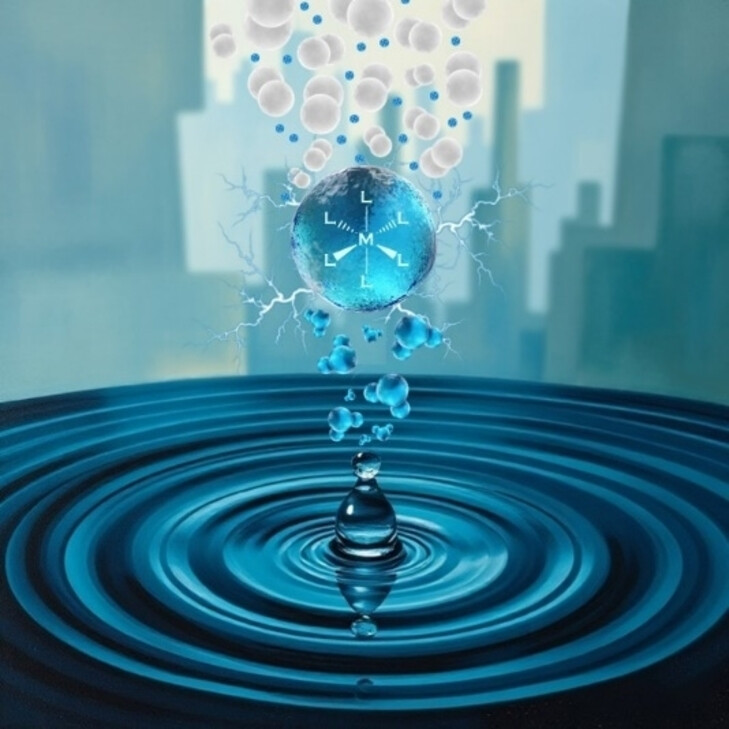
The review highlights recent advances in homogeneously electrocatalyzed water oxidation mediated by earth abundant transition metal complexes, framed through a comparative analysis with heterogeneous systems and the efficiencies of noble metal catalysts. The role of non-innocent ligands, characterization for stability, catalyst immobilization, and mechanistic insights are critically analyzed to draw a concrete perspective toward sustainability and possible developments of real applications in energy transition.
Recent Advances in Biomolecule-Engineered Metal-Organic Frameworks (Bio-MOFs): From Design, Bioengineering, and Structural/functional Regulation to Biocatalytic Applications
- First Published: 12 March 2025
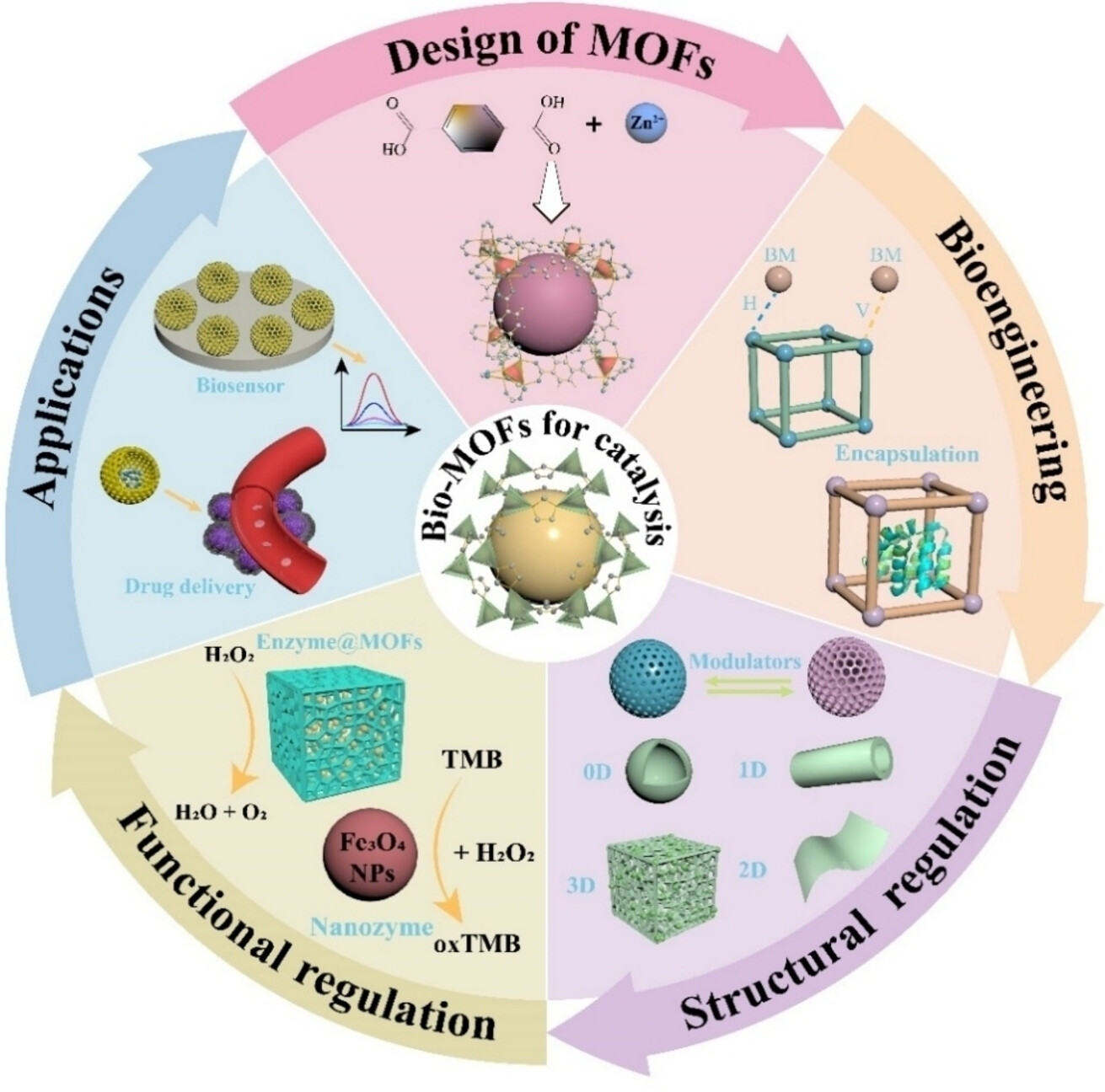
We present a comprehensive review on the bioengineering, structure/functional regulation, and biocatalytic applications of Bio-MOFs. Bioengineering provides versatile strategies to tailor the biological functions of MOFs. Meanwhile, due to the synergistic properties and functions induced by biomolecules and MOFs, the combined Bio-MOFs exhibited great potential in the fields of biosensors, biomedicine, water purification, and bio-energy.




